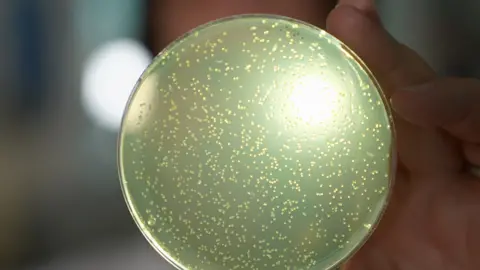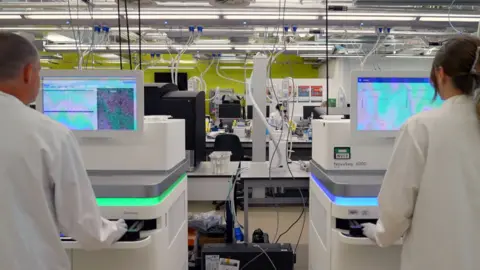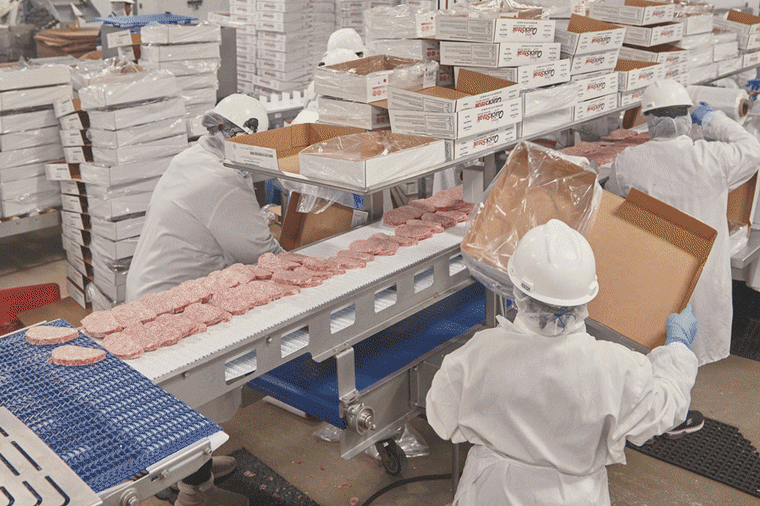Science Videographer
Work has begun on a controversial project to create the building blocks of human life from scratch, in what is believed to be a world first.
The research has been taboo until now because of concerns it could lead to designer babies or unforeseen changes for future generations.
But now the World’s largest medical charity, the Wellcome Trust, has given an initial £10m to start the project and says it has the potential to do more good than harm by accelerating treatments for many incurable diseases.
Dr Julian Sale, of the MRC Laboratory of Molecular Biology in Cambridge, who is part of the project, told BBC News the research was the next giant leap in biology.
“The sky is the limit. We are looking at therapies that will improve people’s lives as they age, that will lead to healthier aging with less disease as they get older.
“We are looking to use this approach to generate disease-resistant cells we can use to repopulate damaged organs, for example in the liver and the heart, even the immune system,” he said.
But critics fear the research opens the way for unscrupulous researchers seeking to create enhanced or modified humans.
Dr Pat Thomas, director of the campaign group Beyond GM, said: “We like to think that all scientists are there to do good, but the science can be repurposed to do harm and for warfare”.
Details of the project were given to BBC News on the 25th anniversary of the completion of the Human Genome Project, which mapped the molecules in human DNA and was also largely funded by Wellcome.
 Getty Images
Getty ImagesEvery cell in our body contains a molecule called DNA which carries the genetic information it needs. DNA is built from just four much smaller blocks referred to as A, G, C and T, which are repeated over and over again in various combinations. Amazingly it contains all the genetic information that physically makes us who we are.
The Human Genome Project enabled scientists to read all human genes like a bar code. The new work that is getting under way, called the Synthetic Human Genome Project, potentially takes this a giant leap forward – it will allow researchers not just to read a molecule of DNA, but to create parts of it – maybe one day all of it – molecule by molecule from scratch.
 BBC News
BBC NewsThe scientists’ first aim is to develop ways of building ever larger blocks of human DNA, up to the point when they have synthetically constructed a human chromosome. These contain the genes that govern our development, repair and maintenance.
These can then be studied and experimented on to learn more about how genes and DNA regulate our bodies.
Many diseases occur when these genes go wrong so the studies could lead to better treatments, according to Prof Matthew Hurles, director of the Wellcome Sanger Insititute which sequenced the largest proportion of the Human Genome.
“Building DNA from scratch allows us to test out how DNA really works and test out new theories, because currently we can only really do that by tweaking DNA in DNA that already exists in living systems”.
 BBC News
BBC NewsThe project’s work will be confined to test tubes and dishes and there will be no attempt to create synthetic life. But the technology will give researchers unprecedented control over human living systems.
And although the project is hunting for medical benefits, there is nothing to stop unscrupulous scientists misusing the technology.
They could, for example, attempt to create biological weapons, enhanced humans or even creatures that have human DNA, according to Prof Bill Earnshaw, a highly respected genetic scientist at Edinburgh University who designed a method for creating artificial human chromosomes.
“The genie is out of the bottle,” he told BBC News. “We could have a set of restrictions now, but if an organisation who has access to appropriate machinery decided to start synthesising anything, I don’t think we could stop them”
Ms Thomas is concerned about how the technology will be commercialised by healthcare companies developing treatments emerging from the research.
“If we manage to create synthetic body parts or even synthetic people, then who owns them. And who owns the data from these creations? “
Given the potential misuse of the technology, the question for Wellcome is why they chose to fund it. The decision was not made lightly, according to Dr Tom Collins, who gave the funding go-ahead.
“We asked ourselves what was the cost of inaction,” he told BBC News.
“This technology is going to be developed one day, so by doing it now we are at least trying to do it in as responsible a way as possible and to confront the ethical and moral questions in an upfront way as possible”.
A dedicated social science programmewill run in tandem with the project’s scientific development and will be led by Prof Joy Zhang, a sociologist, at the University of Kent.
“We want to get the views of experts, social scientists and especially the public about how they relate to the technology and how it can be beneficial to them and importanlty what questions and concerns they have,” she said.










